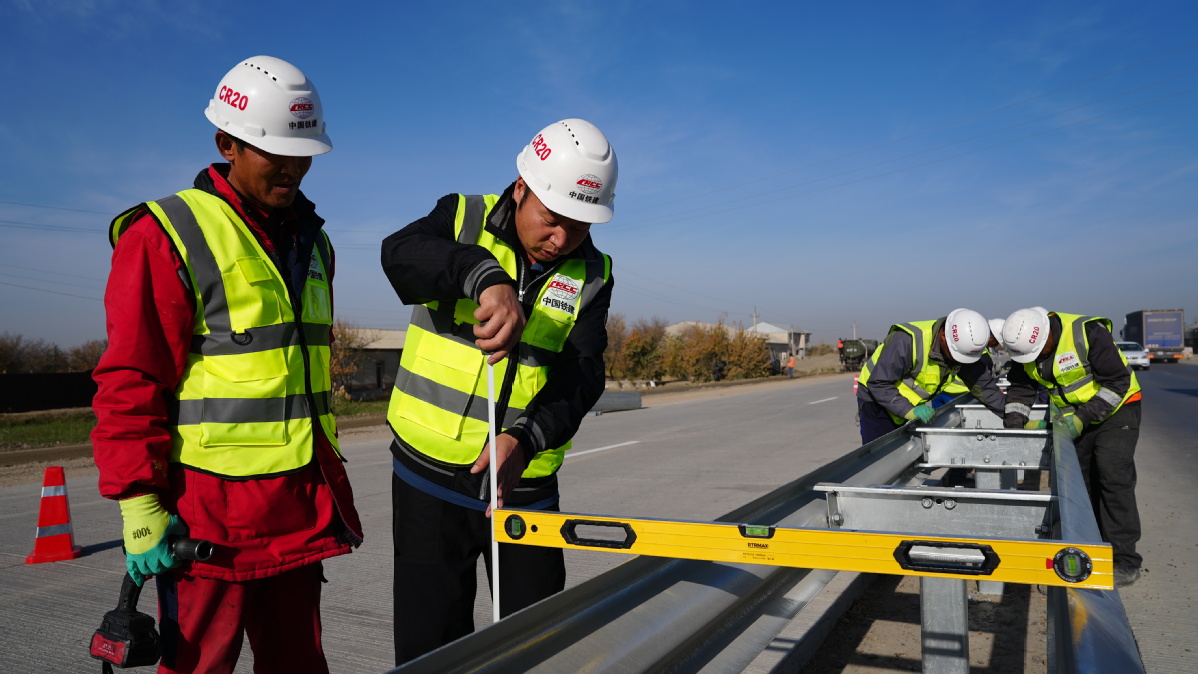State-owned builder plans more overseas forays
By ZHONG NAN | China Daily | Updated: 2023-12-13 09:06

State-owned China Railway 20th Bureau Group Corp plans to secure more overseas projects in the years ahead, guided by a popular Chinese saying — "roads first, then prosperity" — which points to how infrastructure projects can generate growth opportunities.
This has especially proved useful in many partner economies involved in the Belt and Road Initiative after a decade of growth.
Supported by 20,000 employees, the Xi'an, Shaanxi province-based company is now looking to participate in both traditional infrastructure and "new infrastructure "projects, especially in countries and regions participating in the BRI, to further optimize its overseas footprint.
Unlike traditional infrastructure, such as railways, roads and water conservancy, the concept of "new infrastructure" refers to critical facilities based on information technologies, like 5G, AI, the industrial internet, and the internet of things, which describes networks of devices that can connect and exchange data.
CR20G, a subsidiary of Beijing-based China Railway Construction Corp Ltd, completed construction of the 87-kilometer-long A380 highway reconstruction project in Uzbekistan in early November, about 15 days ahead of schedule.
Uzbekistan, a landlocked nation well known for its high-quality cotton, has in recent years transformed into a "land-linked country" due to the continuous progress of cooperation in jointly building the BRI.
The original Uzbekistan A380 highway was a two-lane, severely worn out asphalt road with many potholes and cracks. Vehicles were traveling at speeds of only 60 kilometers per hour, due to significant safety hazards.
The newly expanded A380 highway now has four lanes, and is constructed with cement concrete, and designed for a speed of 120 km/h. It is currently the highest-grade highway in Uzbekistan, said Wang Bairen, head of the A380 highway reconstruction project at CR20G.
The project will not only improve local traffic conditions, creating a safer and better transportation environment, but also stimulate economic growth for local communities, especially within the logistics and services sectors along the route, said Wang.
A section of the 87-kilometer construction area traverses densely populated urban areas with a network of natural gas and various other pipelines. Any slight movement in one part may have had a cascading effect on the entire situation, making relocation challenging, said Wang.
The project has adopted the construction technology standards of the United States, Russia and Uzbekistan, he added.
Wang said that the most distinctive feature and challenge of this project were in the concurrent operation of traffic and construction.
Within road reconstruction projects in Uzbekistan, the A380 highway reconstruction project stands as one of the rare initiatives that adopted the "simultaneous traffic and construction "approach.
The Chinese executive said the original road served not only as a crucial transportation link connecting the primary urban center with rural areas, but also as an international thoroughfare from Uzbekistan to Kazakhstan and countries in the Caspian Sea region, experiencing heavy vehicular traffic. This was particularly evident during the local cotton harvest season, with a continuous flow of trucks.
Since the construction started in July 2020, over 600 Uzbek workers have undergone training in project maintenance, surveying, testing and other skills.
Aside from the design and construction of transportation infrastructure, CR20G's business scope includes real estate development, manufacturing, logistics and trade, railway transportation, environmental protection, engineering project inspection, design consulting and training.
Given that the economic growth of Central Asian countries is significantly dependent on energy and commodity trade, it is pragmatic for them to collaborate with Chinese companies to strengthen the trade framework and enhance cooperation in infrastructure development, public services, green economy, modern agriculture and manufacturing, said Zhao Fujun, a researcher specializing in international economic cooperation at the Beijing-based Development Research Center of the State Council.
























